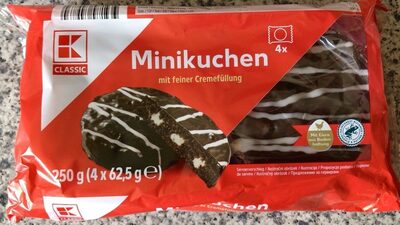
Barcode: 4337185749834
Kuchen
DOUBTFUL
📝 Reason: This product includes religiously uncertain substances that could be Halal or Haram. Definitive classification requires more detailed production information.
🏷️ Category: Snacks, Sweet Snacks, Biscuits And Cakes, Cakes
📄 Certificates: N, /, A
Ingredients:
Details
Understanding the Halal Status of Kuchen
The Kuchen, a delightful sour cake, is known for its creamy filling and delectable cocoa glaze. However, its Halal status has been labeled as ‘Doubtful’ due to the uncertain nature of some ingredients used in its production. In this article, we will explore the ingredients and their classification in terms of Halal compliance, helping consumers make informed choices.
What Makes a Product Halal?
To understand the Halal status of any food product, it is essential to consider the ingredients and their sources. Halal compliance in food products means that the ingredients and the entire manufacturing process align with Islamic dietary laws. In the case of Kuchen, some components might pose uncertainties regarding their source.
Ingredient Breakdown
The Kuchen contains the following ingredients, each having a significance in the Halal status assessment:
1. Sour cake with 20% cream filling
This ingredient is permissible in Islam and is generally considered Halal. However, production methods and sources of the cream must be checked for compliance.
2. 16% cocoa-containing fat glaze
Cocoa-derived products are typically Halal, but additional ingredients in the glaze may affect this status. Cocoa itself is not considered harmful, but the processing method must be verified.
3. White fat glaze
Similar to the above ingredients, white fat glaze must be scrutinized to ensure it does not involve any non-Halal sources.
4. Sugar
Sugar is generally acceptable in Halal dietary laws and does not pose any risk. It is one of the fundamental ingredients in cakes.
5. Wheat starch
Wheat starch is permissible as well, as it originates from plants and does not involve any animal derivatives.
6. Eggs
Eggs from Halal sources are widely accepted in Halal diets, although the source (e.g., free-range) should always be verified.
7. Practical fats (Palm oil)
Both palm oil and rapeseed oil used in this product are permissible under Halal, provided they do not undergo any non-Halal processing.
8. Low-fat cocoa powder
As with the cocoa glaze, cocoa powder should also be scrutinized for processing to remain compliant.
9. Moisture-retaining agent glycerin
Glycerin can be from animal or plant sources, so it’s important to ensure it is derived from Halal-compliant sources.
10. Food fat mixtures
This component must also be investigated for Halal adherence. Ingredients from animal sources undermine the Halal classification.
11. Sorbitan tristearate (E492)
This emulsifier is often derived from non-Halal fats, thus placing it under scrutiny. Its status is uncertain, making it a concern for strict Halal observers.
12. Sodium
Sodium and its compounds are accepted in Halal diets as they do not come into contact with Haram substances.
Conclusion
In summary, while most of the ingredients used in Kuchen can be categorized as Halal, the presence of certain components such as sorbitan tristearate raises doubts. The product’s Halal status remains inconclusive without more detailed production information. For those adhering strictly to Halal diets, seeking confirmation from manufacturers would be wise before consuming this delightful cake.
Always remember, when it comes to food, it’s best to be informed. If you have further questions about Halal products or want to explore further options in the snacks, sweet snacks, and cakes category, feel free to reach out or do your research!
